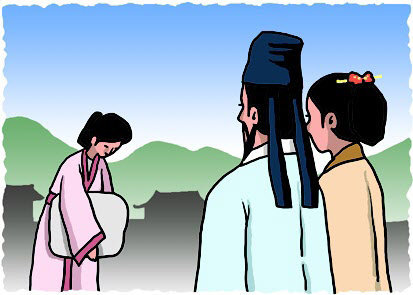Poet and gisaeng
Poet and gisaeng
Posted November. 17, 2023 08:11,
Updated November. 17, 2023 08:11

It's an unusual episode for a poem. The poet calls a doctor to cure his wife's illness, but since he can't afford the treatment, he proposes to offer his gisaeng, a female entertainer. The proposition seems like a joke, but the gisaeng knows he means it. She bids farewell to the poet’s wife. Xin Qiji was ousted from public office after a conflict with a faction that rejected war and promoted peace; he advocated for restoring the Northern Song ancestral domain. He is revered as a patriotic poet for his numerous works expressing his country's anger. It is doubtful that the poet, who wrote many songs about the leisurely life in the countryside and was once rumored to have built a luxurious villa, lived in such poverty. "The song and dance I enjoyed have become deserted," the poet said. It seems that, rather than being poor, he may have been trying to get rid of the gisaeng as his interest in song and dance faded.
Gisaengs are more akin to professional dancers and singers than courtesans. In the Song Dynasty, they gained such popularity that it became customary for aristocrats to have them in their households. Figures such as Ouyang Xiu and Su Shi had around 10 gisaengs in their homes, and in the case of Xin Qiji, as many as seven gisaengs' names appear in his works. 'Hosagun' has no connection to the content; it is the name of a tune.
Headline News
- Shin Hanul 3 and 4 nuclear power plant construction resumes
- Political leaders and doctors struggle to convene a council
- Trump sparks debate with false claims, Harris criticized for job numbers exaggeration
- Money Lending Act amendment bill to begin this month
- Washington puts pressure on Seoul to join chips regulations on Beijing







